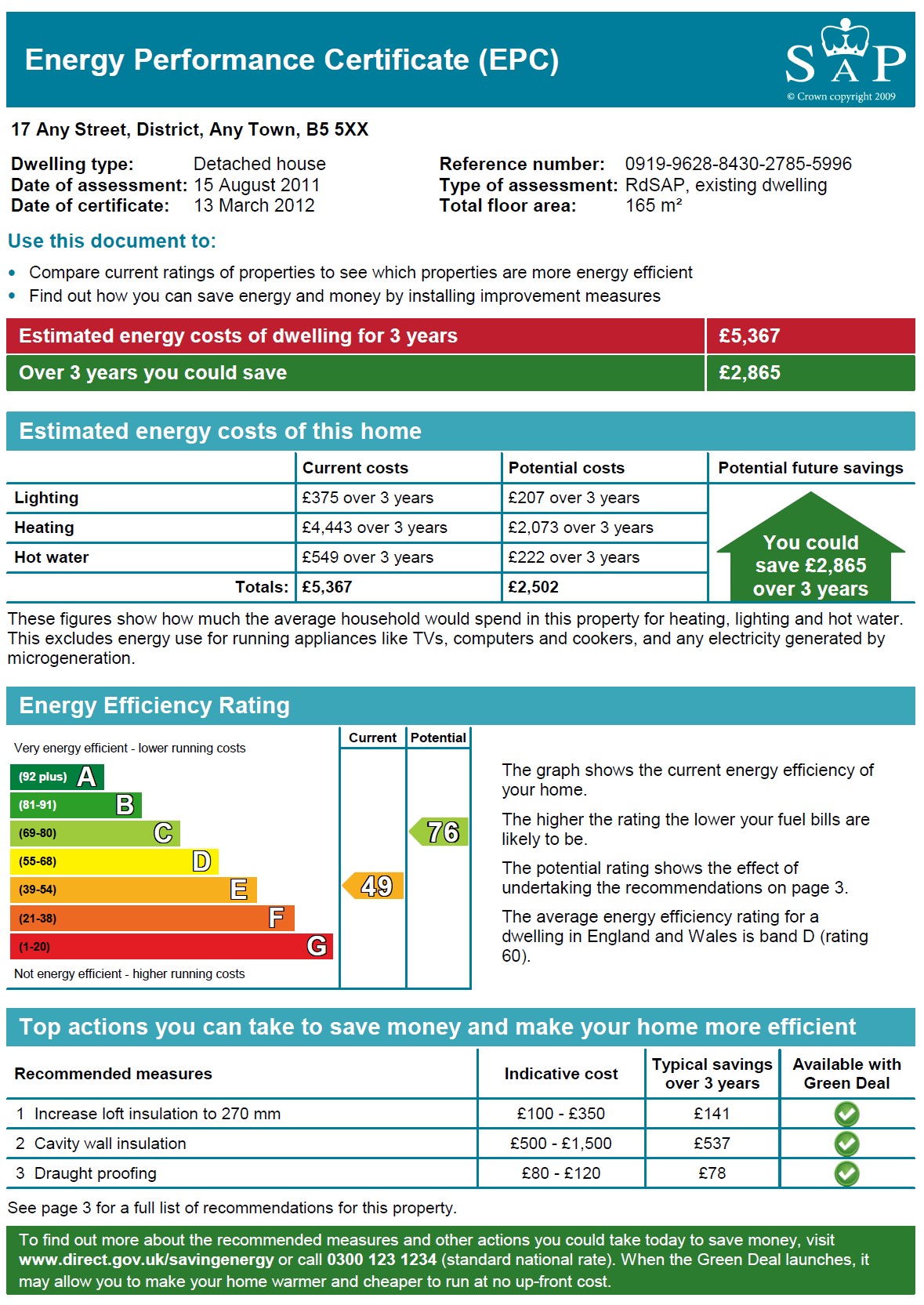When buying or renting a property, you might have come across the term “Energy Performance Certificate” or EPC. But what exactly is it, and why is it essential? In this blog post, we’ll explore what an EPC is, the procedure involved, and its legal requirements when selling or renting a property. Additionally, we’ll discuss how making improvements based on the EPC recommendations can help save on energy bills.
What is an Energy Performance Certificate (EPC)?
An Energy Performance Certificate (EPC) is a document that provides vital information about the energy efficiency of a property. It rates a property’s energy efficiency on a scale from A (most efficient) to G (least efficient) and provides recommendations on how to improve its energy performance. The certificate also estimates the property’s annual energy costs, allowing potential buyers or tenants to make informed decisions about their future energy expenses.
The EPC Procedure:
When I conduct an EPC assessment, I visit the property and carefully evaluate various elements that impact its energy efficiency. These include insulation, heating systems, lighting, and mechanical ventilation. The assessment is entirely non-intrusive, so homeowners need not worry about any major alterations being required.
During the assessment, I take detailed notes and measurements to accurately determine the property’s energy performance. The process usually takes about an hour, depending on the size and complexity of the property.
Once the assessment is complete, I compile the information and calculate the EPC rating on a scale from A to G, with A being the most energy-efficient and G being the least. I then provide the homeowner or landlord with the Energy Performance Certificate, along with valuable recommendations on how to improve the property’s energy efficiency and reduce energy costs.
Legal Requirements:
In the UK, an EPC is a legal requirement for most properties that are being sold or rented out. When marketing a property for sale or rent, the homeowner or landlord must ensure that a valid EPC is available to potential buyers or tenants. Failure to provide an EPC can result in penalties and delay the property transaction.
Improving Energy Efficiency:
One of the most significant advantages of having an EPC is the insight it provides into potential energy-saving improvements for the property. The report includes practical recommendations to enhance energy efficiency and reduce utility bills.
These recommendations can range from simple, cost-effective changes like installing energy-efficient light bulbs or better insulation, to more substantial upgrades such as replacing old boilers with modern, energy-saving models. Making these improvements not only benefits the environment but also makes the property more attractive to potential buyers or tenants, potentially increasing its value or rental appeal.
Saving on Energy Bills:
Implementing the energy-saving measures recommended in the EPC can have a noticeable impact on energy bills. By improving the property’s energy efficiency, homeowners can reduce energy wastage and enjoy lower monthly utility costs. Over time, these savings can add up significantly, making it a wise investment for both the homeowner and the environment.
In conclusion, an Energy Performance Certificate (EPC) is a crucial document that provides valuable information on a property’s energy efficiency. It is a legal requirement when selling or renting a property, and it empowers homeowners to make energy-saving improvements that lead to long-term cost savings. So, whether you’re looking to buy, rent, or sell a property, paying attention to the EPC can make a considerable difference in both your finances and environmental impact.






